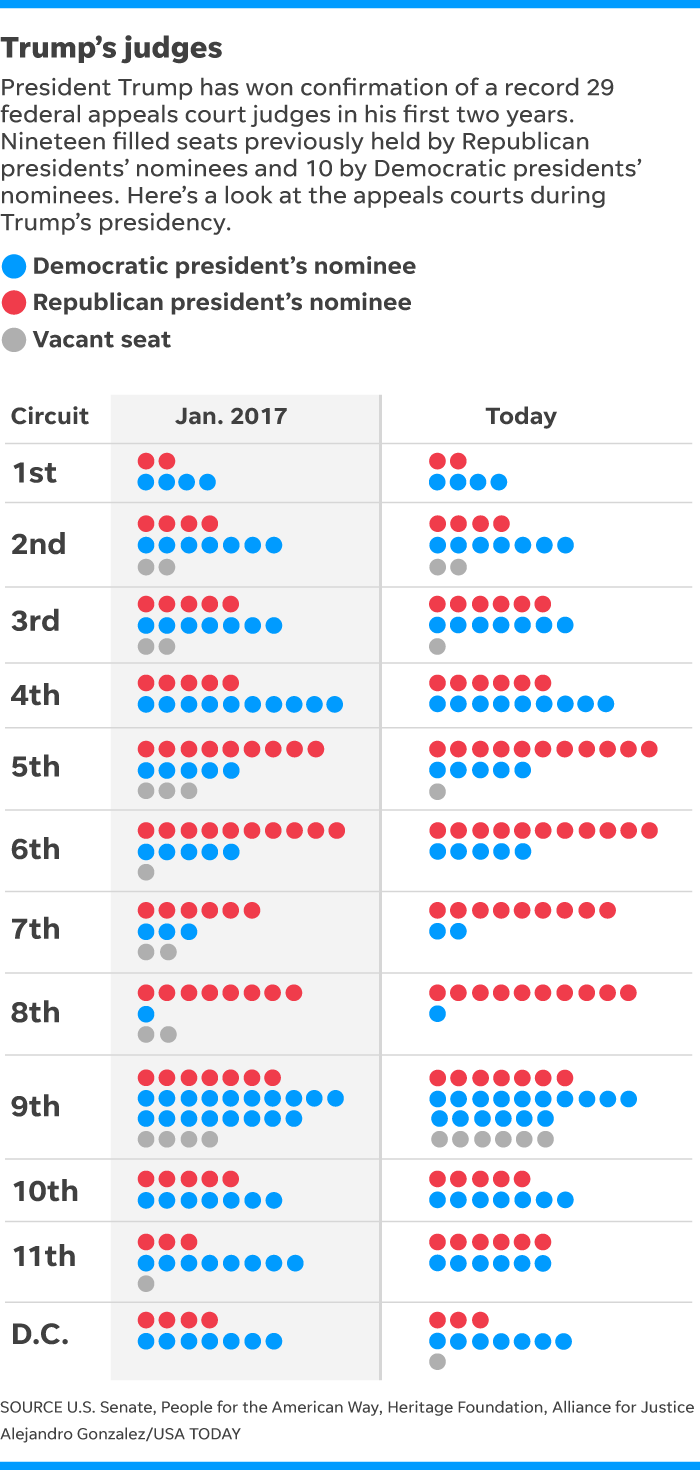
Judicial elections, democratic appointment (e.g., senate confirmation), and the Missouri Plan (a/k/a "merit selection")
Search This Blog
Tuesday, November 20, 2018
Thursday, November 1, 2018
Reforming SCOTUS For Ideological Balance
As decisions by — and appointments to — the Supreme Court have become increasingly divisive, several reformers suggest replacing justices' life tenure with non-renewable terms of 18 years, such that one term ends every two years. That way, as Nevada Law Professor David Orentlicher explains, "less would be at stake with each nomination, justices could not time their retirements for partisan reasons, and appointments would be divided more evenly between Democratic and Republican presidents."
Orentlicher says "There is a sound argument to be made that Supreme Court reform is constitutionally required. In particular, principles of due process and the framers’ original intent provide good reason to think that neither a conservative nor liberal Court majority should be able to impose its views on the country."
While I doubt such reform is constitutionally required, Orentlicher notes interesting European examples:
Orentlicher says "There is a sound argument to be made that Supreme Court reform is constitutionally required. In particular, principles of due process and the framers’ original intent provide good reason to think that neither a conservative nor liberal Court majority should be able to impose its views on the country."
While I doubt such reform is constitutionally required, Orentlicher notes interesting European examples:
- "In Germany, for example, nominees to the Constitutional Court must receive a two-thirds vote of approval and therefore must appeal to legislators on both sides of the partisan aisle."
- "In many European nations, high court decisions are made by consensus, or at least a supermajority vote, so justices on both sides of the ideological spectrum have to support the courts’ opinions. The U.S. Supreme Court itself observed a norm of consensual decisionmaking for most of its history. Until 1941, the justices typically spoke unanimously. Only about 8 percent of cases included a dissenting opinion. Now, one or more justices dissent in about 60 percent of rulings."
Subscribe to:
Comments (Atom)
